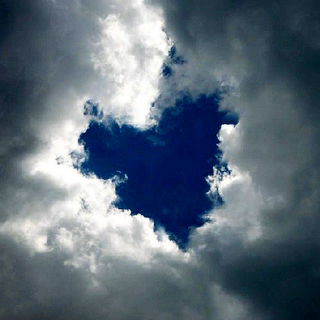What is the Arguments Against Miracles?

In western civilization today we see society leaning heavily towards anti-supernatural thinking. Of course, this kind of thinking contradicts the Scriptures, which are filled with supernatural events. If proposition #3 (The Theistic God exists) is true then supernatural events are possible. The only way to disprove miracles is to disprove the theistic God’s existence.
A Miracle Defined
Supernatural origin
A miracle can be defined as an event that has supernatural origin and cannot be explained through natural laws. Natural laws can only describe the orderly way in which the world generally functions. But a miracle is a supernatural exception to the regular course of the natural world. The theistic God is completely capable of miraculous intervention since He is all-powerful. He is also all-knowing and all-good and by nature His desire would be to communicate with His creation and do well on their behalf. But have miracles actually happened in the course of history? First, it must be noted that the greatest miracle has already happened, the creation of the universe and life from absolutely nothing. The rest of the miracles in the Scriptures are small in comparison to the creation.
Trustworthiness of Scripture
Second, the combined trustworthy testimony of the historical New Testament documents and New Testament witnesses affirm that numerous miracles have happened in human history. These miracles found in the Scriptures have several aspects that make them unique. First, they are unusual, not your everyday occurrence; they don’t follow the normal pattern of the natural world. Second, there is a theological aspect. The God who created the world also participates in its affairs. Third, there is a moral aspect. God’s moral character is revealed. Fourth, there is a doctrinal aspect. A miracle is always connected with a truth claim. Fifth, there is a teleological aspect. There is distinct purpose, design, to show evidence that the miracle came by the hand of God and is not just some magic trick for entertainment. Of course, it is important to look at miracles from a theistic view. One can make sense of and properly recognize a miracle when the theistic worldview is the mental framework through which to analyze the supernatural event.
In defense of supernatural events, it is necessary to properly define miracles and place them in the proper context in order to defend the proposition which states ‘Miracles are Possible’. Belief in miracles is essential to theism and the apologetic task.
Arguments Against Miracles
David Hume's argument
The rejection of miracles in modern society can be traced back to the writings of David Hume. Unlike Benedict Spinoza who argued that miracles are impossible, Hume accepted the possibility of miracles but claimed that they are merely incredible and that no wise man should believe them. In Hume’s argument against the credibility of miracles, a wise person never should believe in rare occurrences (miracles) because all of our uniform experience suggests that they don’t happen. Even when a rare occurrence does have evidence one should disregard it because it is not a regularly occurring event. Therefore, one should believe that miracles never happen, past, present, or future.
The problem with this thinking is that Hume presumes to know that all experience is uniformly against miracles before he looks at the evidence. How could Hume know that all possible experience (past, present, future) has and will confirm his naturalistic views? One would have to know all experience (for all people) in order to know that all experience is uniform. Or, maybe Hume is just suggesting that the uniform experience of some, or even most, people is against miracles. This would exclude those (the disciples) who have experienced miraculous intervention and have evidence. This of course would be a bias. Instead of weighing the evidence in the balances, Hume added up the evidence for his conclusions.
Deaths happen more than resurrections, so there is no reason to believe in resurrections because they do not occur regularly. Hume’s naturalism would not allow him to view the evidence and come to a logical assumption because he had already decided that he wasn’t going to believe in miracles based on his skepticism. Hume also argued that the witnesses for miraculous events are never credible because the claims for the miraculous always come from ignorant and uneducated people groups or nations. Therefore no testimony of miraculous occurrences should be believed because of the lack of integrity of the witnesses themselves. Even if Hume were to be faced with the attestation of credible witnesses concerning a miraculous event, according to his own words, he still would not believe it. No matter how many witnesses are provided for a miraculous event, no rational person should believe, according to Hume.
Arguing the Past is Unknown
Another argument against miracles can be stated that the only way that miracles of the past can be accepted as historical is if they also happen in the present. Since resurrections from the dead do not happen today, we cannot know if resurrections happened in the past. Essentially, this argument does not claim that biblical miracles didn’t happen, it merely claims that they are historically unknowable. According to the historical arguments against miracles, historians who want to be historically accurate must hold to an anti-supernatural view.
The argument presupposes that there are no past singular events. And if there is evidence for a past singular event it will not be allowed because it cannot be repeated. Why would someone stand so firm against miracles before viewing the evidence? It is because they have prior commitments to disregard all things supernatural. There are many amazing events that are recorded in history that historians believe and accept to be accurate documentation. All these events would have to be discredited by their own reasoning.
Arguments from Scientific Standpoint
There are other arguments, from a scientific standpoint, used to show that miracles are not plausible. Miracles are claimed to be contrary to scientific method because they cannot be predicted. Science is based on predictable natural laws and therefore cannot use supernatural explanations for conclusions of any event. It is claimed that if a supernatural explanation is used for a conclusion, then science might provide a natural explanation in the future.
In other words, all explanations must be natural explanations or they do not really count. It is assumed that all events will eventually have a natural explanation even though there is no reason to assume this. The scientific process does allow for events that are an exception to a natural law without calling for an explanation. Scientists do not revise laws when an anomaly happens. Since science deals with regularly occurring events that have a natural explanation, a miracle should be looked at with a different set of glasses instead of trying to force miracles to fit into the scientific method for regular events.
All false conclusions from the fields of philosophy, history, and science need to be defended against to establish the possibility and actuality of miracles. Theism depends on the proper defense against invalid arguments that attack miracles.
